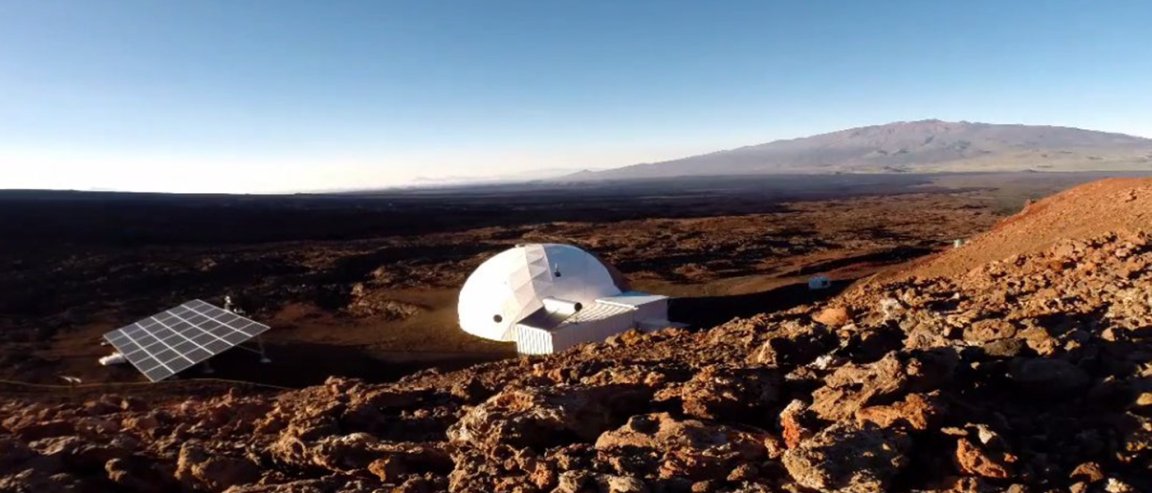
Living Under No Simple Circumstances
For an entire year, the Hawaii Space Exploration Analog and Simulation (HI-SEAS) six-person crew, had to live under a small, (366) square-meter (1,200 square-foot), two-story, dome, located on the barren slopes of Mauna Loa, to simulate Mars’ natural environment—with its rocky and sparse terrain sharing a huge similarity to the Red Planet.

Funded by NASA, this experiment tested how a group of strangers would cope with the extreme, and long-term isolation that astronauts would undoubtedly endure during an actual, and real-life Mars mission—having several restrictions such as only being able to leave if they have a spacesuit on; and only being able to eat either canned or powdered food. The team consisted of a French astro-biologist, a German physicist and four Americans – a pilot, an architect, a journalist and a soil scientist.
During the experiment, the crew had to almost entirely be self-sufficient, having only a limited supply of food and other necessities at their disposal. Moreover, even online communication was subjected to a 20-minute delay to mimic the present limitations of the Mars-to-Earth communication.
Future of HI-SEAS
Fortunately, despite the challenging conditions of the experiment, the test showed the team can maintain performance, resource gathering, and social graces while spending long periods in the relative isolation necessary for a Mars mission—whether it’s a temporary stay or a full-fledged colony, according to Engadget.
While a success, this mission doesn’t mark the end for HI-SEAS. NASA has offered grants that will keep the experiment going through 2019. In fact, the researchers have already started planning the next Mars simulations—with the recruitment of 2017’s and 2018’s mission participants already underway.
“I can give you my personal impression which is that a mission to Mars in the close future is realistic,” Cyprien Verseux, a crew member from France, told journalists. “I think the technological and psychological obstacles can be overcome.”